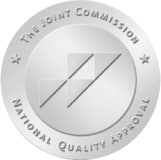

Our team strives to get to the root cause of addiction and mental health issues while also identifying the underlying risk factors that could be contributing to and exacerbating these diseases.
Our state-of-the-art addiction rehab center provides a clear path to recovery through healing & restoration. We provide evidence-based interventions for treating the following substance use disorders:

At our addiction treatment center in New Jersey, we look forward to getting to know you and supporting you on your journey to freedom from addiction. We provide a broad range of clinically intensive treatment services in a safe, structured, and caring environment. All of our treatment services include conflict resolution and occupational enhancement. Additional counseling and treatment services are also offered by our passionate team of experts. If you need additional support beyond treatment, we can suggest reputable recovery houses in the area.













Trying to detox and go through recovery alone is dangerous and lonely. Supervised detox allows you to start your journey more comfortably and safely. One key component of staying in recovery is having a supportive team of people helping you through every step. You can receive this support at our addiction treatment center in New Jersey.
While we do not offer medical detox programs, our experts can suggest highly reputable clinics where you can receive this treatment. Once detoxification has begun, we will provide the rehabilitation services you need and suggest recovery houses (if necessary) to help you achieve long-term sobriety.
At Lifetime Recovery in Mullica Hill, NJ, in South Jersey, our outpatient addiction treatment clinic treats people with conditions ranging from drug and alcohol addiction to mental illness. We’re also one of the few rehabilitation centers to provide gambling addiction treatment.
Through our integrated model and holistic approaches, we provide evidence-based winning solutions for you to recover from addiction and develop healthy ways to live the rest of your life. Get in touch with our team today to learn more about our admissions process and find a treatment option personalized to your needs. Our addiction treatment center proudly serves New Jersey and the surrounding areas, including Philadelphia County, Delaware, Connecticut, and New York.






Not everyone has the means and access to the treatment resources they need to manage their condition and recovery for the long term. It’s also common for people to assume that insurance won’t cover the cost of treatment at an addiction recovery center. For this reason, many people don’t seek help, and it’s often why diseases of addiction are misdiagnosed and left untreated.
The reality is that many addiction treatment programs are covered by insurance. At Lifetime Recovery, we accept most insurance plans so that we can act as a budget-friendly yet upscale addiction rehab center, helping clients develop skills for a healthier, happier tomorrow.
If you want to learn more about your payment options for alcohol and drug rehab and mental health care, our admissions team is happy to assist you. Find out more about our admissions process by giving the professionals at our addiction rehab facility a call today!
Please note: We do not accept Medicaid or Medicare. However, we’re glad to work with you to establish a payment plan or other means of financial assistance.
124 Bridgeton Pike Mullica Hill, NJ 08062
844-896-8156
